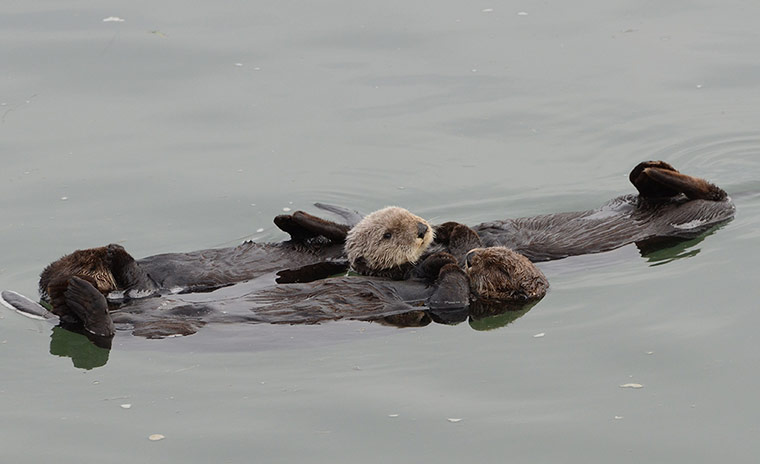TOP STORIES
Red tide toxin found in dead ducks
Fishermen working here recently saw five ducks fly directly into a building, killing themselves. Another 120 dead ducks were found over the last six weeks.
The birds’ carcasses were sent to a lab in Corpus Christi where biologists found the tissue contained brevatoxin, a potent neurotoxin associated with red tides.
Island Coastal Resources Manager Reuben Treviño said since the onset of red tide in September and October, gulls and pelicans have died, but the death of redhead ducks is abnormal. It isn’t immediately clear how the waterfowl are contracting the brevatoxin, he said.
“Redhead ducks winter here because of the sea grass. It’s what they feed on,” Treviño said. “So our next step is to collect sea grass samples from around the bay to determine if they are getting sick through the food web.”
The dying ducks aren’t limited to waters near South Padre Island. The entire 367-mile Texas coast is affected and reports of birds dying span the length of it.
23 Feb 2012
Location: South Padre Island, Texas, USA - Map It

Trapped Dalmatian pelicans hand-fed in frozen Caspian Sea
 Authorities in the southern Russian province of Dagestan are trying to save hundreds of rare Dalmatian pelicans trapped by unusually cold weather.
Authorities in the southern Russian province of Dagestan are trying to save hundreds of rare Dalmatian pelicans trapped by unusually cold weather.The birds migrated to the area near the city of Makhachkala last week.
About 20 birds have already died of hunger after the Caspian Sea froze over, local government spokesman Arslan Dydymov told the Associated Press.
. . . Mr Dydymov said hundreds of kilograms of fish had been bought every day by Dagestan's Nature Protection Ministry for the pelicans.
OTHER WILDLIFE HEALTH RELATED NEWS
Photo courtesy of The Guardian feature The Week in Wildlife
- Livestock disease found in elk southeast of Dillion [Blood tests on elk captured southeast of Dillon found five animals exposed to brucellosis in an area where the livestock disease previously was unknown][Dillion, Montana, USA - Map It
 ]
]
 Disease outbreak kills more birds than Rena [New Zealand] [View past story on this avian botulism outbreak on the Digest's News Map HERE]
Disease outbreak kills more birds than Rena [New Zealand] [View past story on this avian botulism outbreak on the Digest's News Map HERE]
- Dead crow found in Westlake Village tests positive for West Nile Virus [Westlake Village, Los Angles Cty, USA - Map It
 ]
]
- Parks investigates diseased Tarkine devil claim [Tasmania, Australia]
It's Not All Bad News
- Scientists find new sea snakes [Australia]
- That’s Not a Crumb, It’s a Tiny Chameleon [Madagascar]
- New amphibian family find for India [More on new amphibians with pictures here]
- Staghorn Coral Transplanted to Threatened Reef





No comments:
Post a Comment